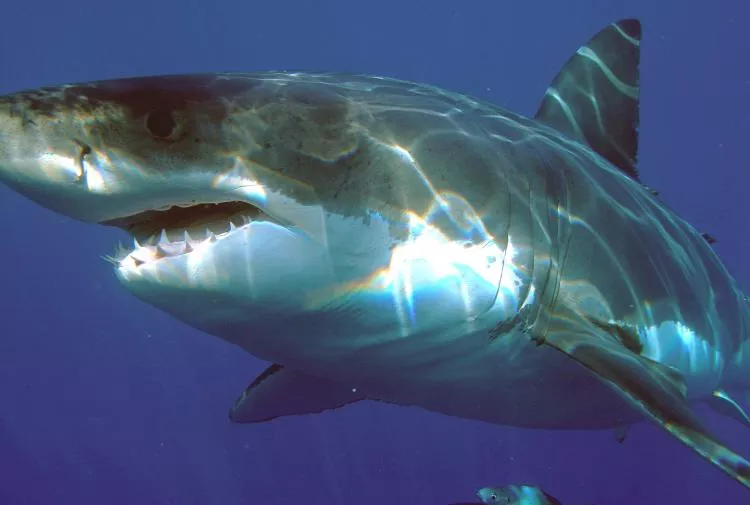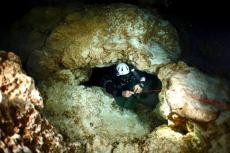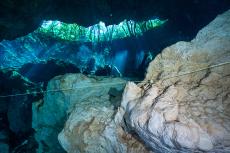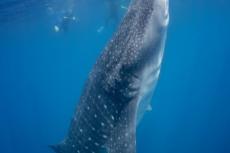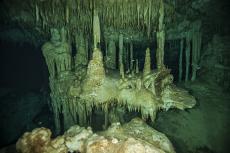Giant Fossil Shark Unearthed in Mexico
A remarkable discovery in a limestone quarry in north-east Mexico has unveiled the fossilized remains of a colossal ancient shark, a distant relative of the great white shark, that prowled the oceans alongside dinosaurs.
Unveiled by an international team of archaeologists and palaeontologists, this finding provides an intriguing glimpse into the ancient seas and the life of a previously unknown apex predator of the Late Cretaceous period.
The creature, believed to have lived approximately 76 million years ago, belonged to the genus Ptychodus, an extinct group of durophagous lamniforms, or mackerel sharks. The team's findings, published in a study in the prestigious journal Proceedings of the Royal Society B: Biological Sciences, describe the specimen as "gigantic," potentially reaching lengths of up to 30 feet, far surpassing its modern relative, the great white shark.
A rare find
The lead author of the study, Romain Vullo, a researcher at Géosciences Rennes, emphasized the rarity of such a discovery. "Complete specimens of Ptychodus were unknown until the discovery of the Mexican material," Vullo told Newsweek. "Such fossils are rare because their exquisite preservation requires exceptional conditions, such as a quiet muddy environment devoid of scavengers."
The remarkably well-preserved fossil provided scientists with unprecedented insights into the morphology and ecology of this ancient predator. Detailed examination revealed intact skeletal structures, including eye sockets, fins, tail, and even impressions of internal organs, offering a detailed glimpse into its anatomy, physical appearance, and dietary preferences.
A glimpse into ancient ecology
Analysis suggests that Ptychodus likely preyed upon hard-shelled organisms such as sea turtles, occupying a specialized ecological niche in Late Cretaceous marine ecosystems. Its extinction, approximately 76 million years ago, may have been influenced by increasing competition from evolving predators targeting similar prey. Members of the Ptychodontid taxa were high-speed sharks, which occupied a specialized predatory niche previously unknown in the fossil record.
Further research is ongoing
Despite these important findings, mysteries surrounding this ancient species persist. Vullo highlighted the potential for further research, including isotope analyses of Ptychodus teeth to confirm its position as an apex predator and to deepen our understanding of its ecological role.
As scientists continue to unearth the secrets of Earth's ancient past, discoveries like this provide invaluable insights into the evolution and diversity of such ancient life forms, enriching our understanding of the world millions of years ago.


